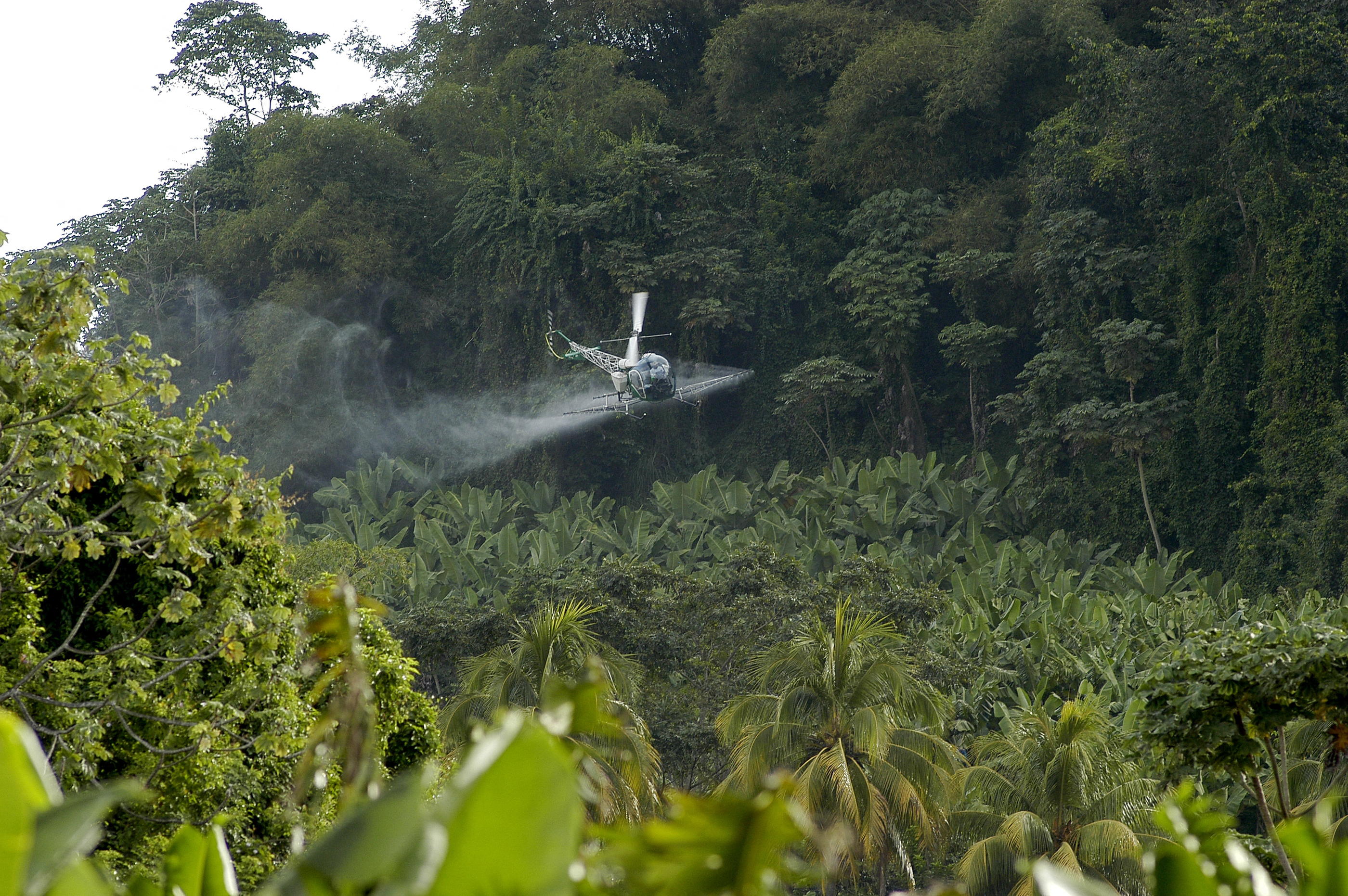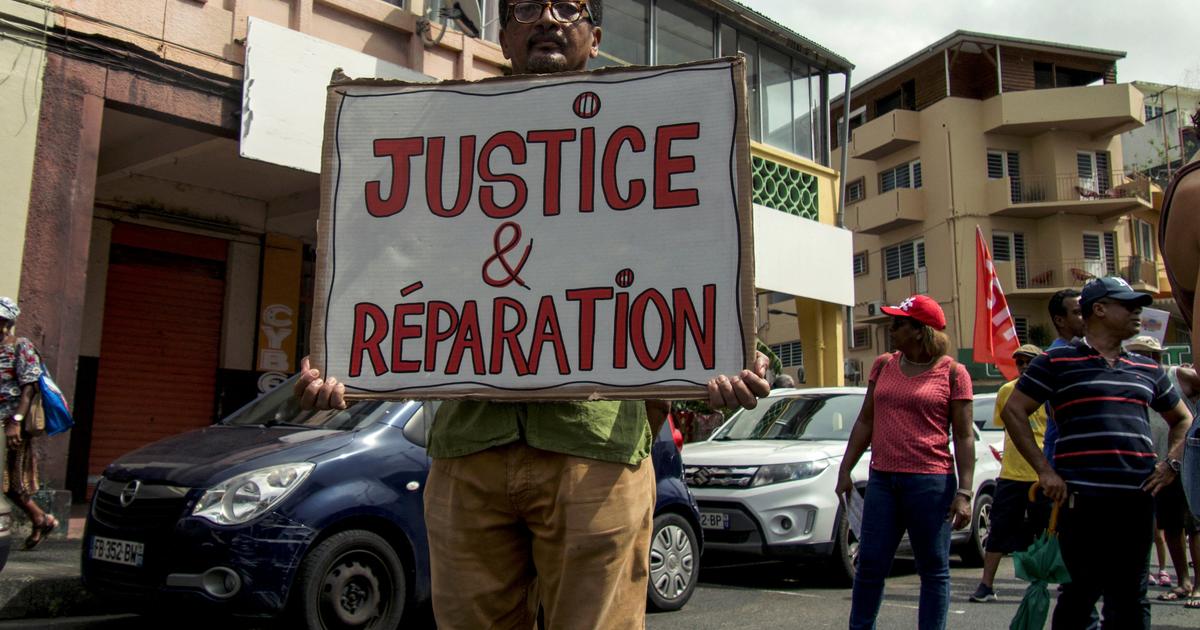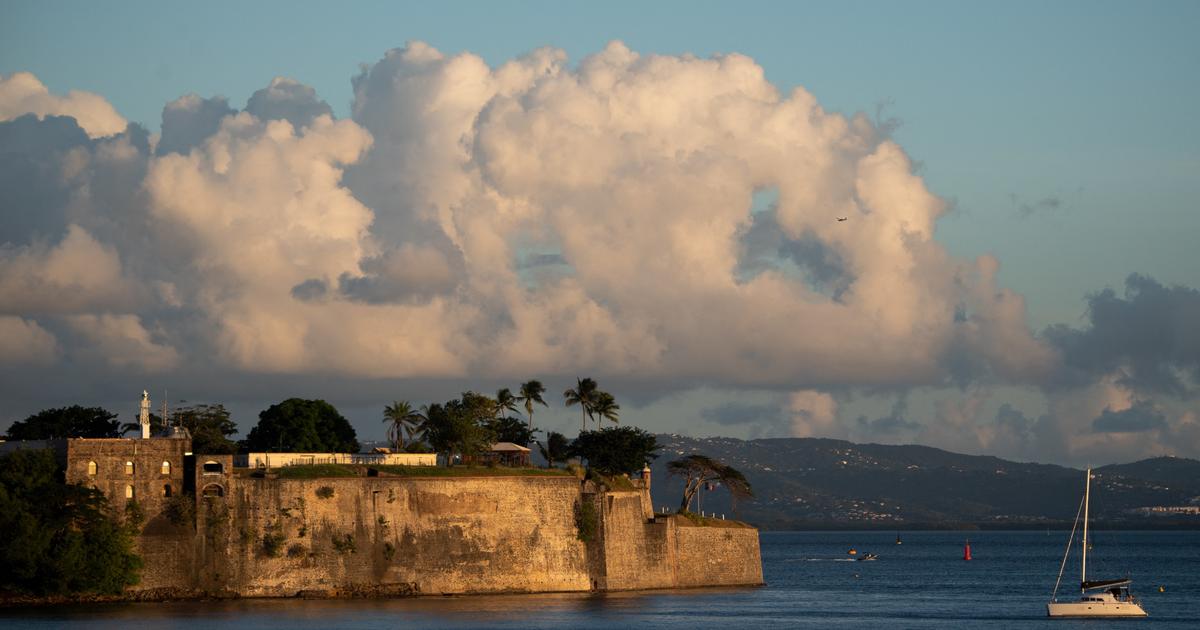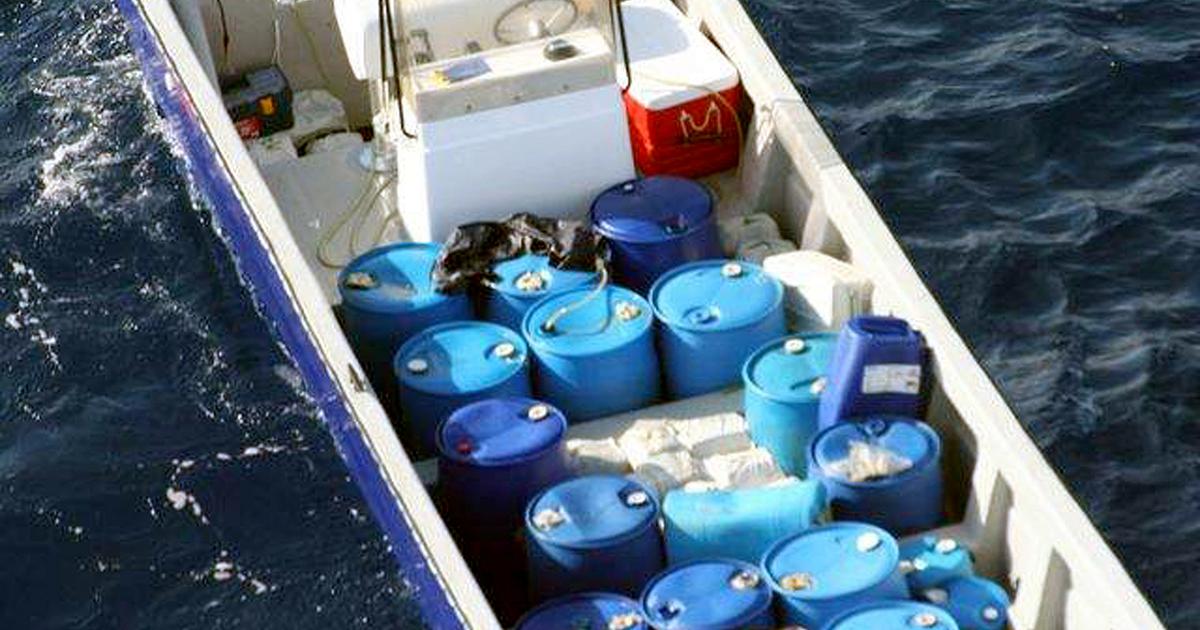Banners float over the bandstand.
Carré madras tied on the head, Naéma Rainette-Dubo, spokesperson for the Zéro chlordecone-Zéro poison collective, takes the microphone to open this gathering organized on March 27 in eastern Paris, in connection with the International Day of commemoration of the victims of slavery.
A refreshment bar, a sound unit and a stand of red-green-black T-shirts have been planted there, under the oblique gaze of the Triumph of the Republic, a monumental bronze statue erected on the Place de la Nation.
Haro on “postcolonialism” and “state negrophobia”, rasta song in homage to “our ancestors”, “reparation” for the crimes of slavery. During the afternoon, a dozen organizations follow one another at the podium. The name of George Floyd, this African-American killed by a white policeman and whose death contributed to the rise of #BlackLivesMatter, comes between the Taubira law and the interventions, live, of the Collective of poisoned agricultural workers in Martinique. Poisoned by what? Chlordecone, this pesticide with an almost unknown name in France but which, by spreading in rivers, soils and food, has contaminated more than 90% of the population in Guadeloupe and Martinique. From 1972 to 1993, this cousin of DDT was used extensively in banana plantations in the West Indies. The United States had already banned it.
The ravages of chlordecone and the memory of slavery, same struggle!
"Go Cannelle, you are addressing the Parisian public!"
», Launches Naéma, his phone plugged into the microphone.
This 37-year-old engineer has for mission to "bridge the gap with Paris".
“Here, we are close to the authorities, we are putting more visible pressure.
A voice of pasionaria can be distinguished 8,000 km away: we must “make all the agricultural workers visible” who are “too sick” and “ostracized”.
Also improve their small pensions "between 200 euros and 700 euros", because "the bekes
(Editor's note: the white Creoles of Guadeloupe and Martinique descending from the first European settlers)
have not declared them", accuses Cannelle, self-claimed "queer afrofeminist" on Instagram.
Alexandre nods.
Protected from the Covid by a flocked mask "Gwada 971", the department of Guadeloupe, this 46-year-old bus driver chairs the Gwoup Kilti Kreyol association (Creole Culture Group).
He came with dancers and musicians to demand “justice and reparation for chlordecone”.
In his youth, he too worked "in the banana".
Paris, March 27, 2021. Alexandre, president of the Gwoup Kilti Kreyol association (Creole culture group), came with dancers and musicians to demand “justice and reparation for chlordecone”.
LP / Philippe de Poulpiquet
In 2006, associations from Martinique and Guadeloupe lodged a complaint for poisoning.
At the end of January, after fourteen years of proceedings, the investigating judges of the health department of the Paris court informed them that the facts could be prescribed.
On February 27, the Paris prosecutor, Rémy Heitz, gave a long interview to the newspaper "France-Antilles", a sort of law course on prescription ... A "threat of impunity" incomprehensible in the eyes of Alexandre, determined to make his "drum" heard.
“In the plantations, it was an instrument of struggle.
For him, the fight against the ravages of chlordecone and for the memory of slavery are one.
Demonstrations in a tense climate in Martinique
Classified as an endocrine disruptor, chlordecone is strongly believed to increase the risk of prostate cancer or affect pregnant women and infants. “The health effects are now visible. Entire families are affected, ”underlines Laurent Jalabert, professor of contemporary history at the University of Pau (Pyrénées-Atlantiques). This partly explains the demonstrations which have been increasing for two years in Martinique, sometimes followed by arrests and police custody. Several trials are underway. "Police violence" and "judicial harassment", denounce anti-lordecone activists.
“The collective has reactivated with a mobilization in front of the prefecture, on the Martinique cycling tour, to have a petition signed, on the carnival, to raise awareness.
At the end of 2019, groups of young people affiliated with no political or trade union association blocked shopping centers owned by the Hayot group, a major figure of the Béké caste, ”says Naéma.
It lists like so many feats of arms the calendar of this new activism around the chlordecone affair, sometimes called the Red-Green-Black movement, in reference to the flag that flies over the demonstrations.
Paris, March 27, 2021. Naéma Rainette-Dubo is the spokesperson for the Zéro Chlordécone-Zéro Poison collective.
LP / Philippe de Poulpiquet
Do not see in it the mark of the separatists, that would be too simplistic.
It is rather an identity symbol, a sign of Martinique.
A banner sufficiently colorful to welcome the diversity of the causes brandished, from feminism to the unbolting of the statues of Victor Schoelcher or Josephine, wife of Napoleon I accused of having encouraged the reestablishment of slavery in 1802, via permaculture or la "Decolonization" of the relationship with the state.
Because it is a deep distrust of the official word that characterizes this movement.
"Now is the time for proofs"
On September 27, 2018, visiting a farm in Morne-Rouge, Martinique, Emmanuel Macron nevertheless gave an unprecedented speech.
“Chlordecone pollution is an environmental scandal.
It was the fruit of collective blindness.
The State must take its share of responsibility, ”declared the Head of State.
Unequivocal words, spoken with the hope of cauterizing the wounds of the past.
Morne-Rouge (Martinique), September 27, 2018. Emmanuel Macron met a farmer whose land is contaminated.
AFP / Thomas Samson
“The President of the Republic has set the bar very high with this speech. He psychologically unblocked things, ”recalls the Minister of Overseas Territories, Sébastien Lecornu, who was on the trip as Secretary of State for the Ecological Transition. “It forced the state apparatus to move forward. Now is the time for proof. I am accelerating a lot on the Chlordecone IV plan, on which unparalleled resources have been put, ”continues the Minister, who says he is“ quite militant ”and“ touched ”by this issue. Aged 43 and 34 respectively, the Head of State and himself can boast of a historical and societal vision that breaks with their predecessors. Gone are the days when Jacques Chirac proclaimed his love for the West Indies and signed, as Minister of Agriculture, the first provisional authorization for chlordecone, in 1972.What convince the Red-Green-Black activists, also marked by the youth? "The president's words have been listened to by the West Indians, but perhaps they have not been received at their true value by all", recognizes Sébastien Lecornu.
The one who must set the action of the State to music is called Edwige Duclay.
In her 40s, this agronomist with strong family ties to Martinique was appointed, in February, interministerial coordinator of the Chlordecone IV plan.
A highly symbolic job creation, supposed to embody this desire to "act" after three plans initiated since 2008 and deemed too timid.
“This is not a plan that falls from Paris.
It was co-constructed with working groups at the local level and largely incorporates the 49 recommendations of the Letchimy report ”, assures the official.
She underlines the budgetary effort: “92 million euros, more than the sum of the three previous plans.
"
"Emmanuel Macron is the only president to have declared:
it is a tragedy
"
The deputy Serge Letchimy (Martinique Progressive Party), at the head in 2019 of a hailed commission of inquiry, does not hear it that way. “50% of the useful agricultural surface is polluted in Martinique and Guadeloupe, and for five hundred years. A third of Martinique's coasts are soiled. The Chlordecone IV plan is a piece of cake. We need a program law over fifteen to twenty years, ”asserts the parliamentarian. The elected Martinique recognizes however that "Emmanuel Macron is the only president to have declared:
It is a tragedy.
"
A tragedy difficult to repair, because, according to historian Laurent Jalabert: “The chlordecone scandal is only the tip of the iceberg. He points to the poor development of the Antilles in the background. Flashback to the 1960s: while the sugar cane business collapsed, local and hexagonal authorities bet on bananas. “But we know it won't be profitable. Chlordecone is therefore authorized to make the most of the banana plantations. Today, its health and environmental impact is causing a scandal. In fact, the system was flawed in advance. In fact, the once promising island has lost its luster. High poverty, tourism at half mast, the scourge of Sargassum algae and nearly one in two young people who go to seek a future elsewhere in France.Martinique has become the most aging territory in the Republic ...
Worse: "France has done everything to hide this limit of the development model chosen for the West Indies", notes Laurent Jalabert. Under these conditions, trust is damaged. And the prospect of a possible prescription does not help ... In mid-March, the National Assembly attends a muscular exchange between the deputy of rebellious France François Ruffin and the Minister of Justice, Eric Dupond-Moretti. "Are you going to let the chlordecone file die […]?" », Asks the first. “The Keeper of the Seals cannot answer this question, but that does not mean that it does not concern him. […] You don't have a monopoly on emotion, ”retorts the second. Atmosphere.
Two days earlier, it was the world of cinema that was challenged.
During this ceremony of the Césars 2021 so political, the director Jean-Pascal Zadi evokes slavery, the affairs of Adama Traoré and Michel Zecler, and… the cursed pesticide.
"With chlordecone in the West Indies, I ask the question of whether certain humanities count", launches the one who has just been crowned best male hope for his film, "Simply black".
More and more, the organochlorine molecule with the unpronounceable name is appearing in the media.
Paris, March 27, 2021. Franco Fiolla (center), spokesperson for the Anti-Négrophobie Brigade, will be tried in May for having tagged the statue of Colbert located in front of the National Assembly last year.
LP / Philippe de Poulpiquet
On May 10, the trial of Franco Fiolla, 49 years old and spokesperson for the Anti-Negrophobia Brigade, will be held for having tagged Colbert's statue in front of the Assembly last June. The opportunity undoubtedly to repeat, as he did at the meeting place de la Nation, that "the use of chlordecone is a chemical expression of state negrophobia". It will also undoubtedly have a good time to point out that, this May 10, 2021, the Taubira law will celebrate its twentieth anniversary. This establishes that “the French Republic recognizes that the transatlantic slave trade […] constitutes a crime against humanity” and promotes in school curricula “the consequent place it deserves”.
Will he also recall that at the time the president was none other than ... Jacques Chirac, and that it was he who chose, in 2006, this date, in homage to the famous Taubira law, to make it one? “National day of memories of the slave trade, slavery and their abolition”?









